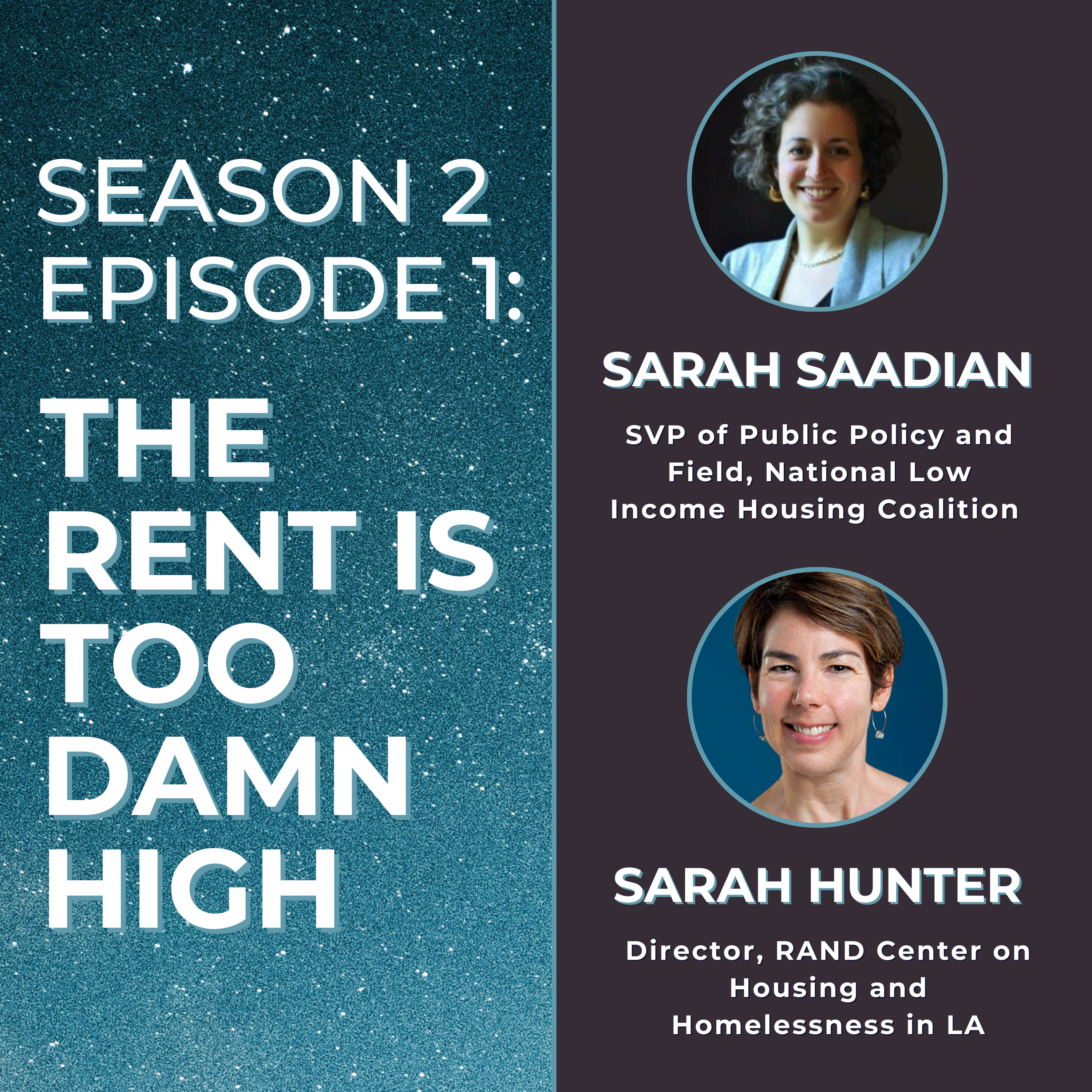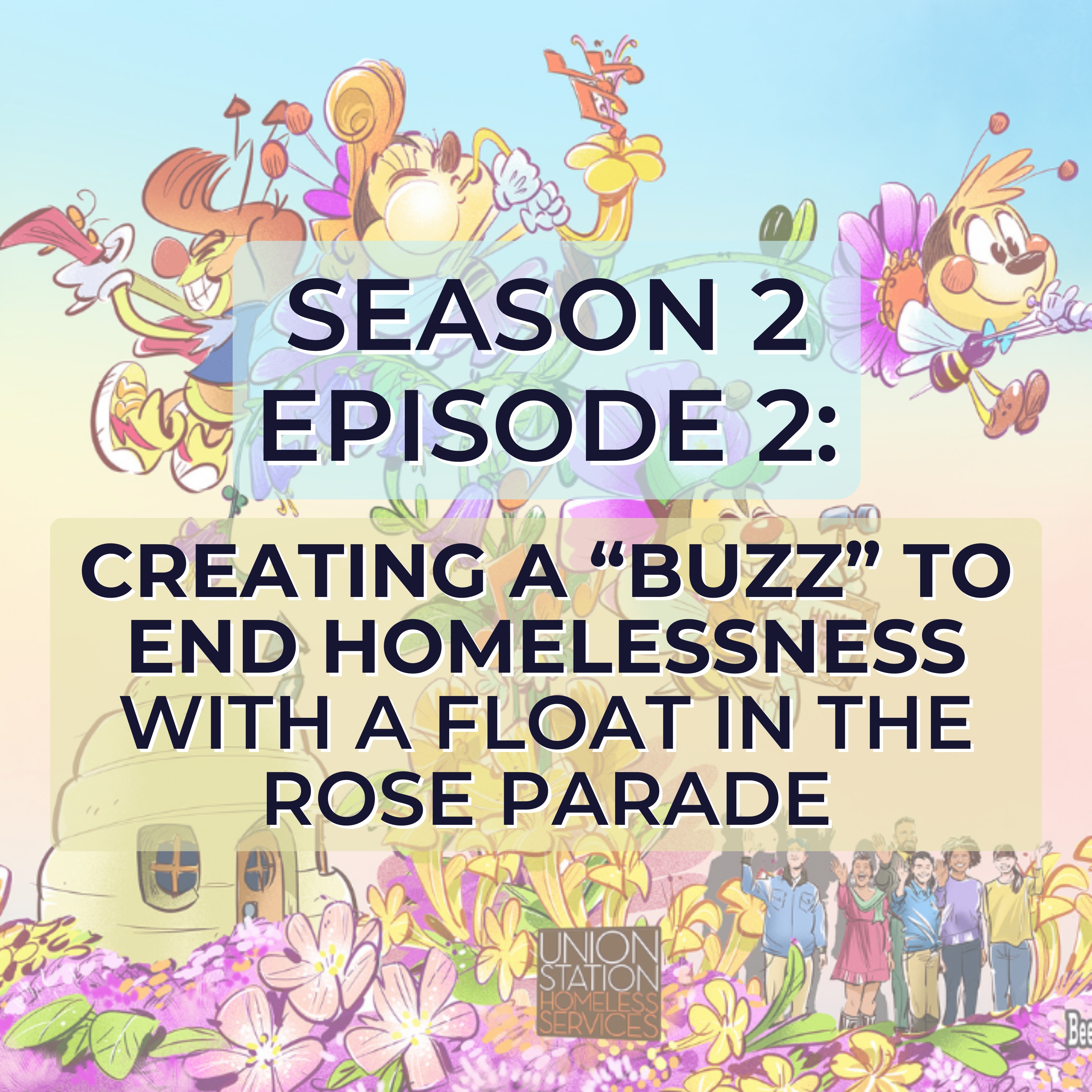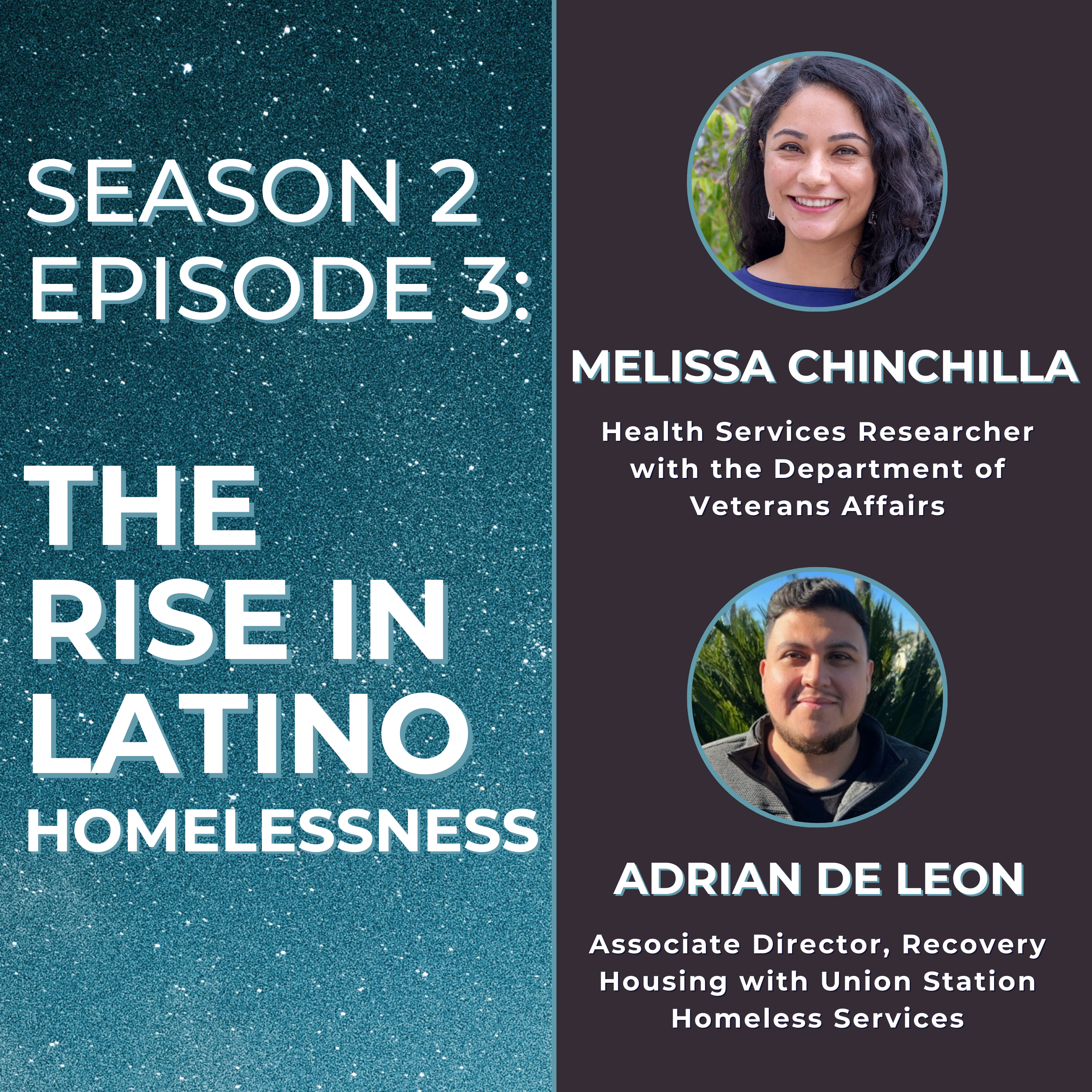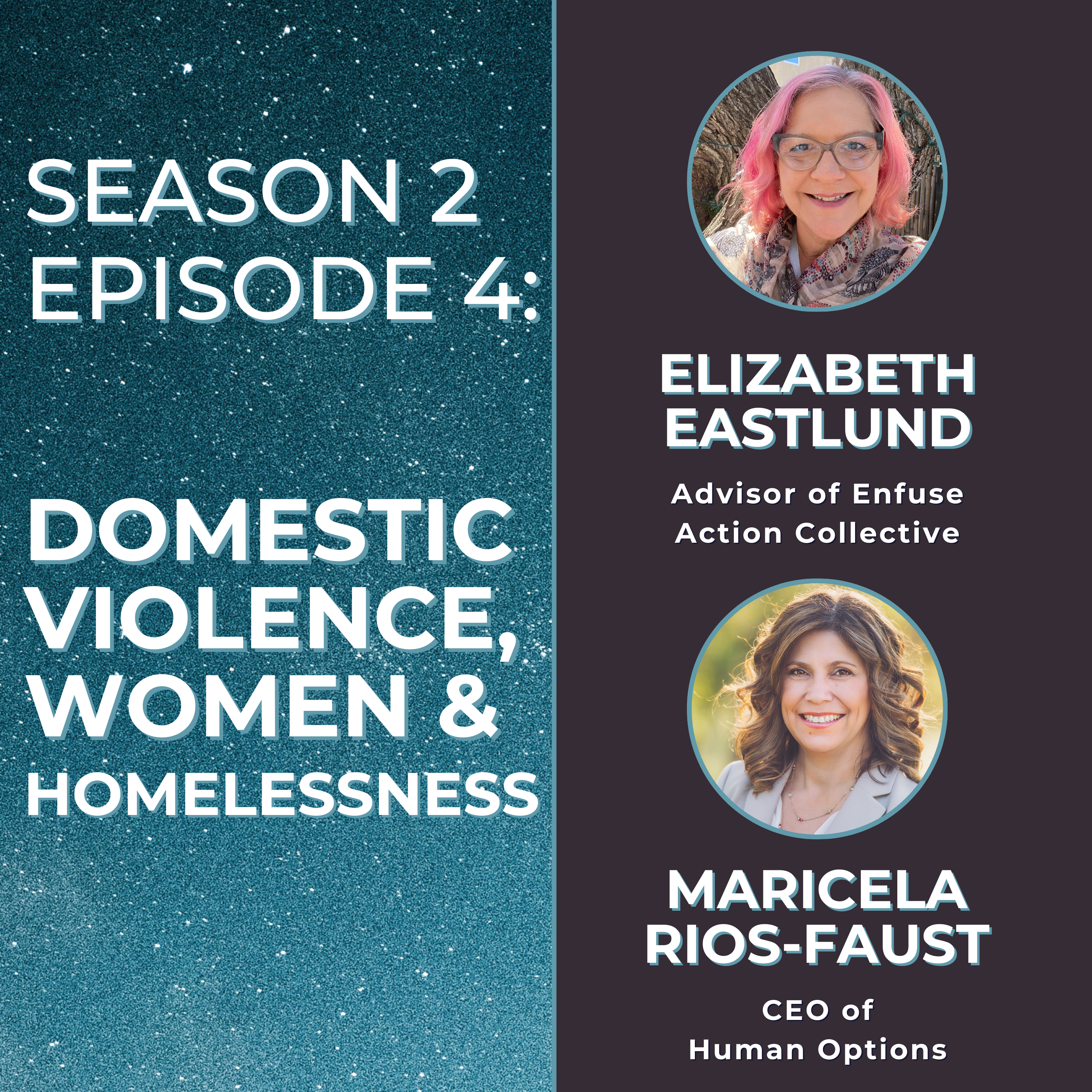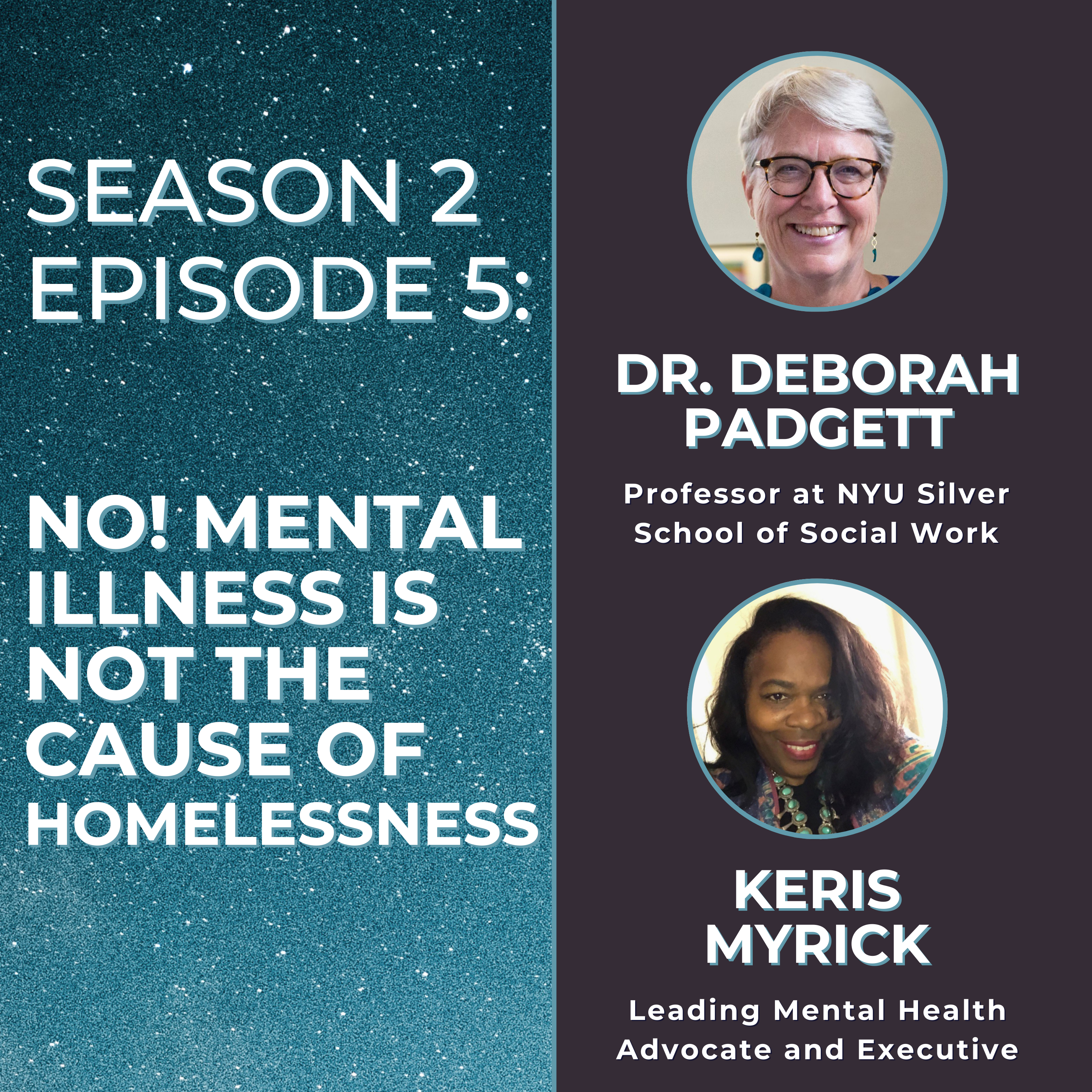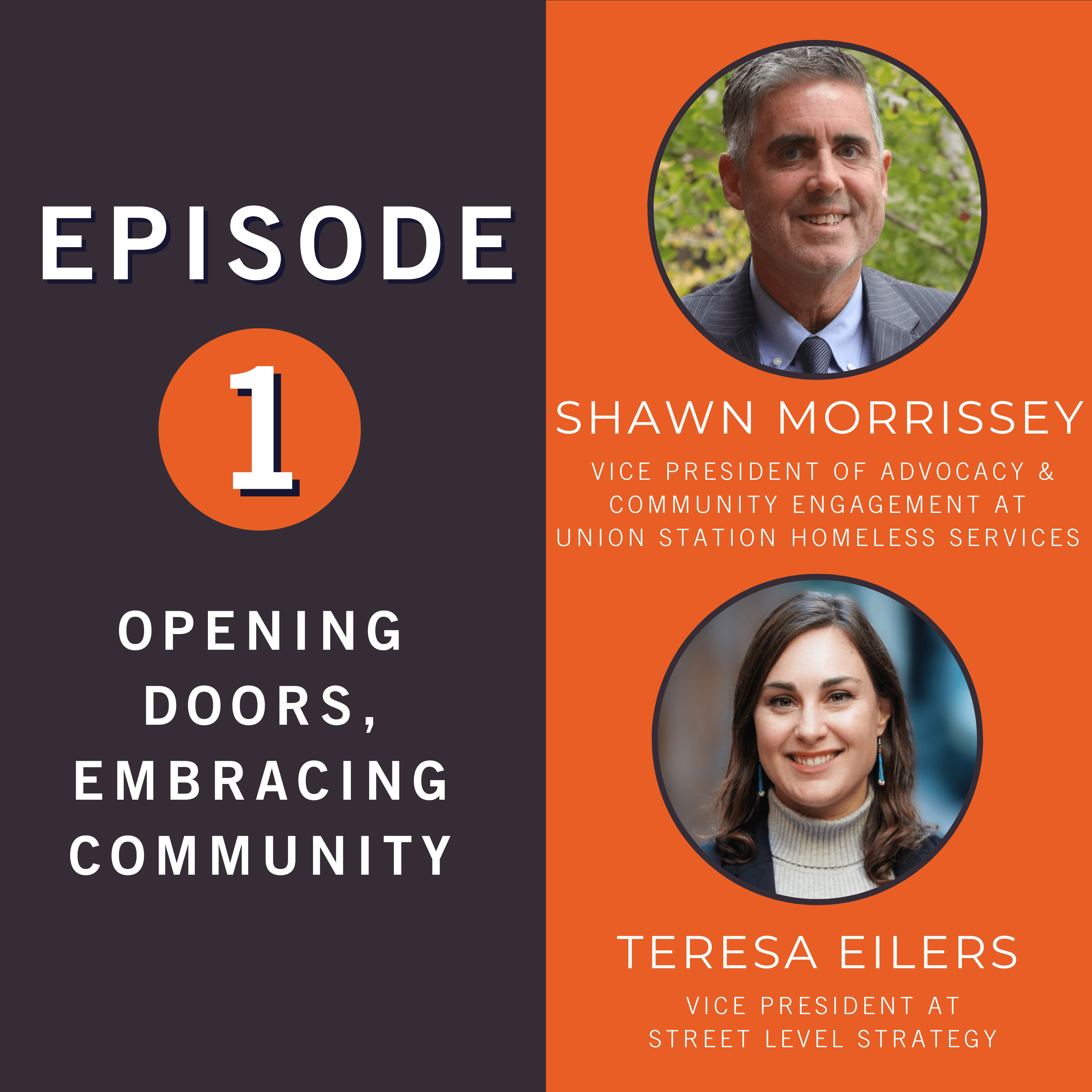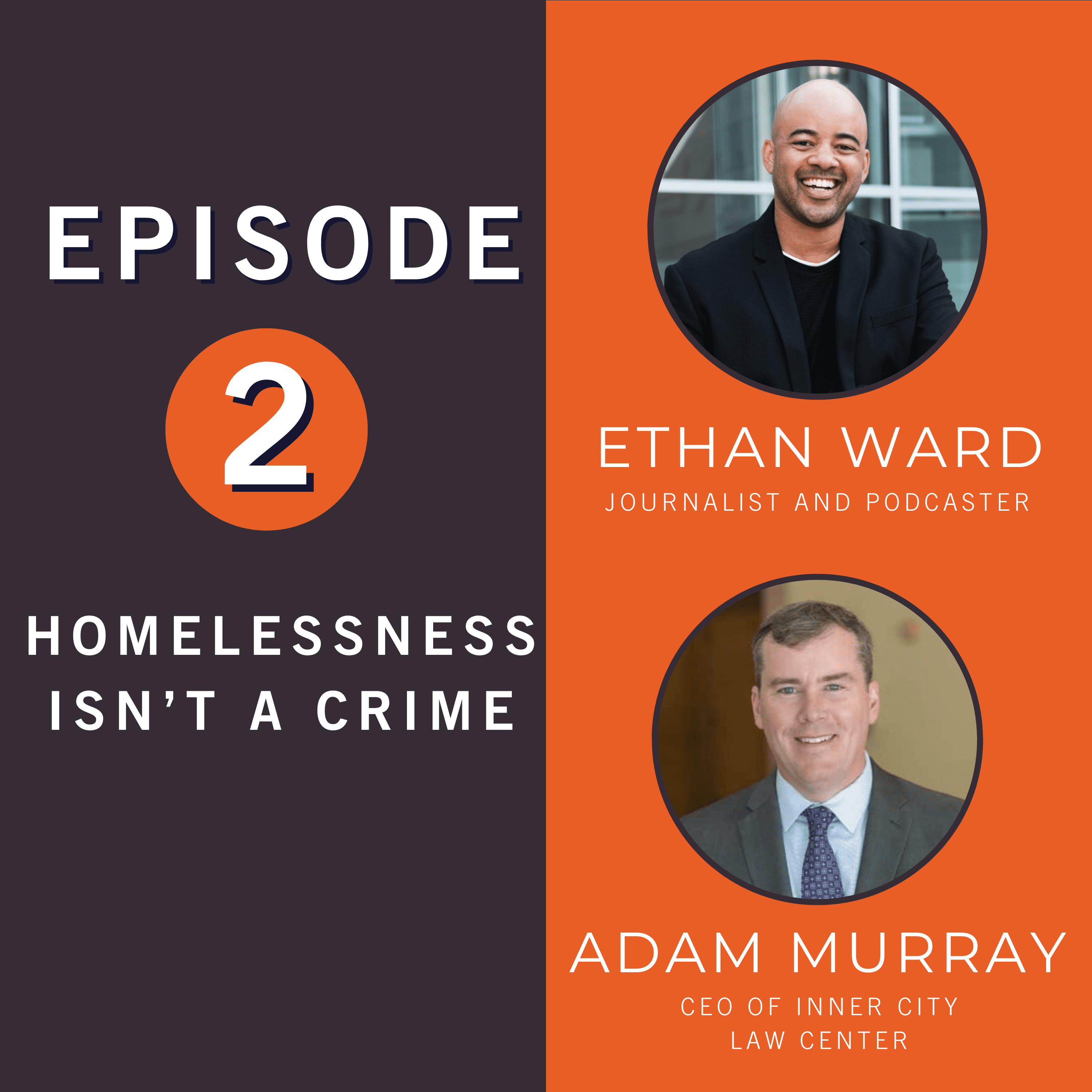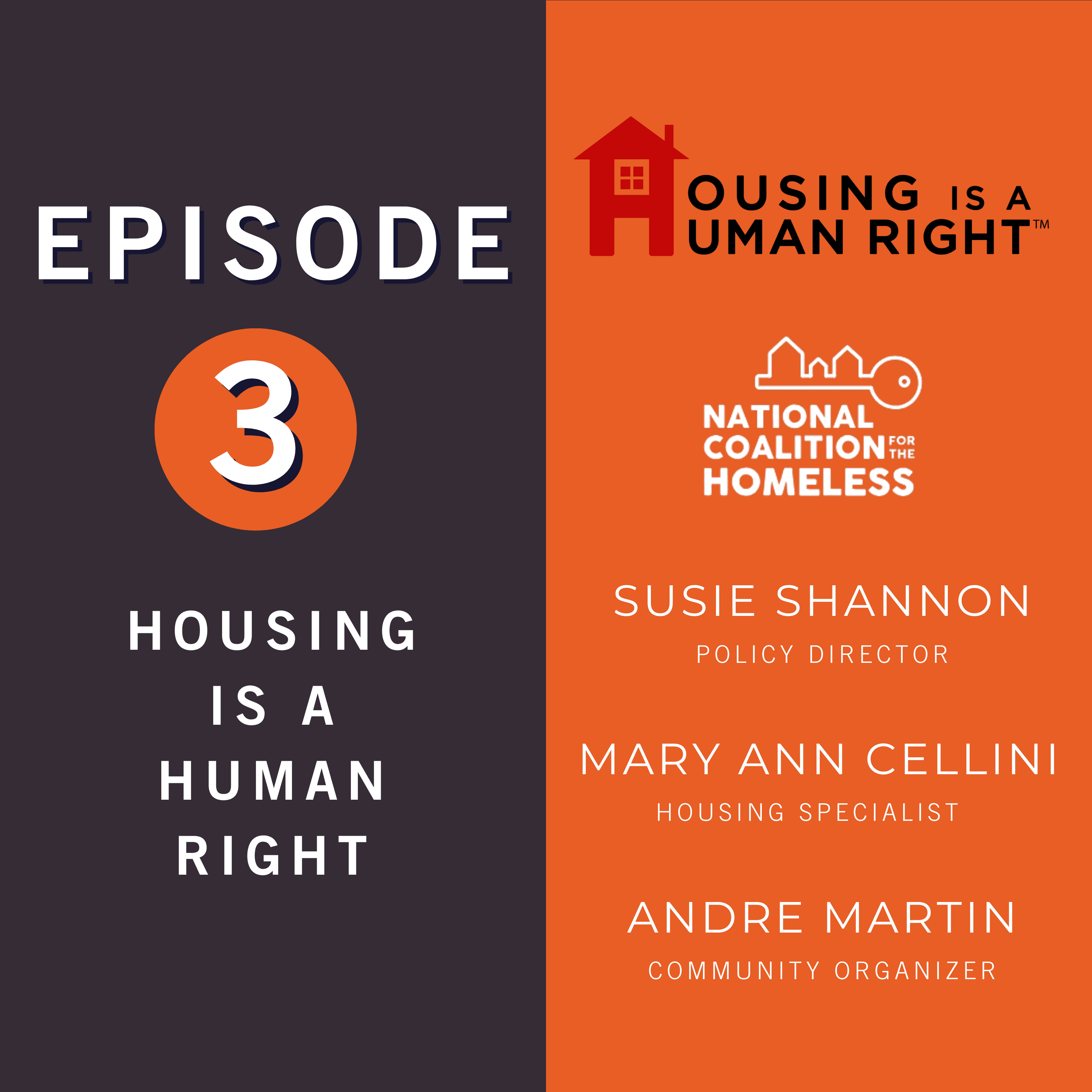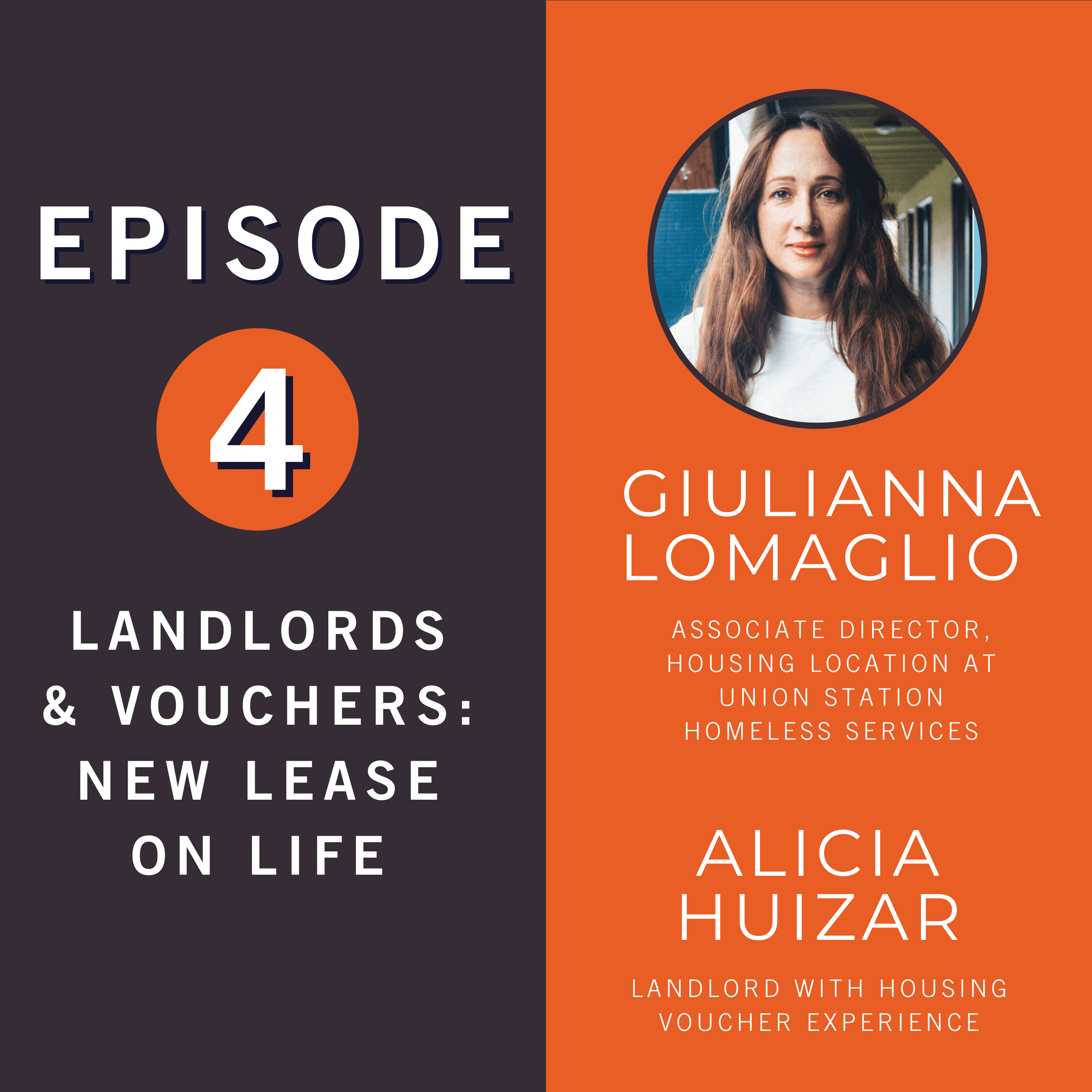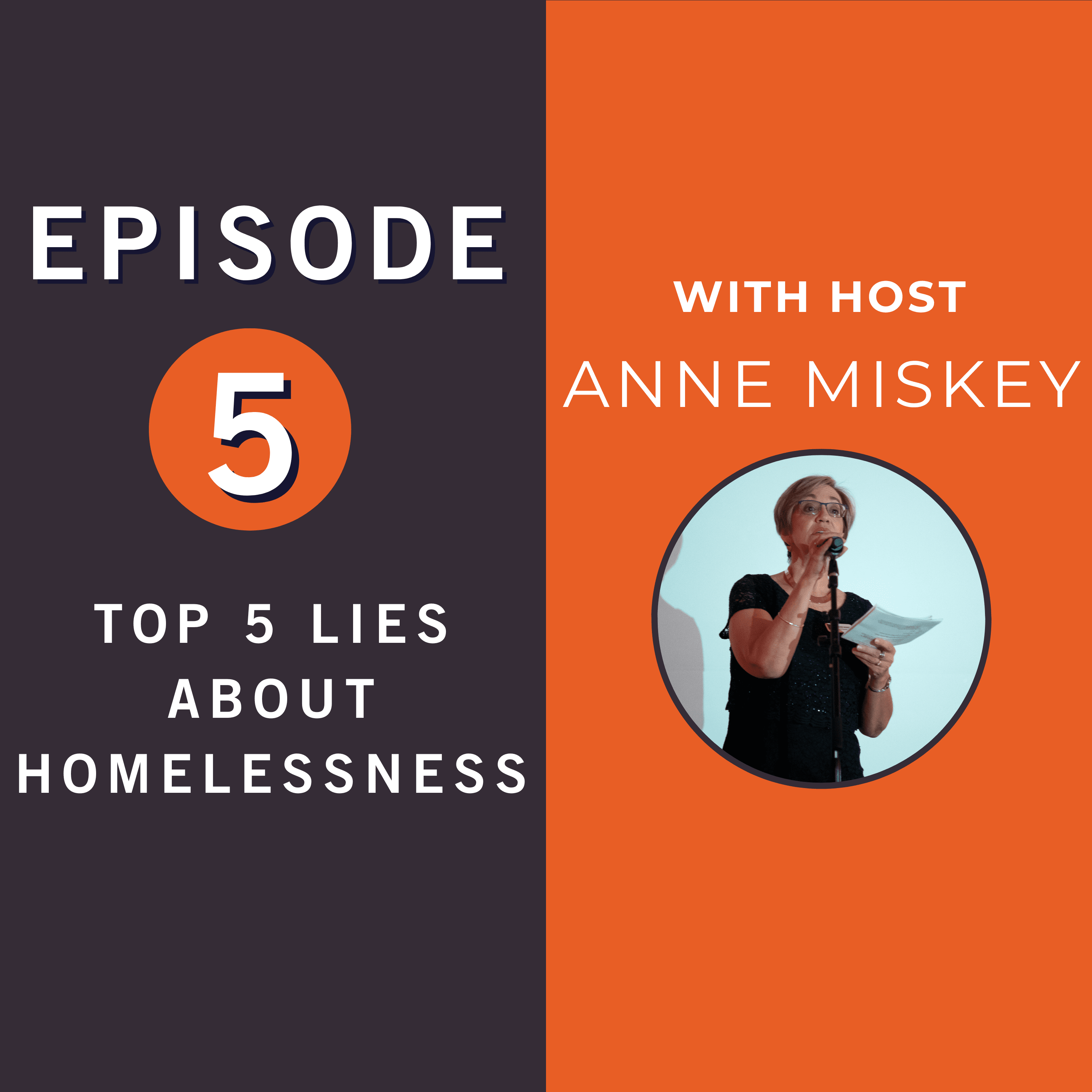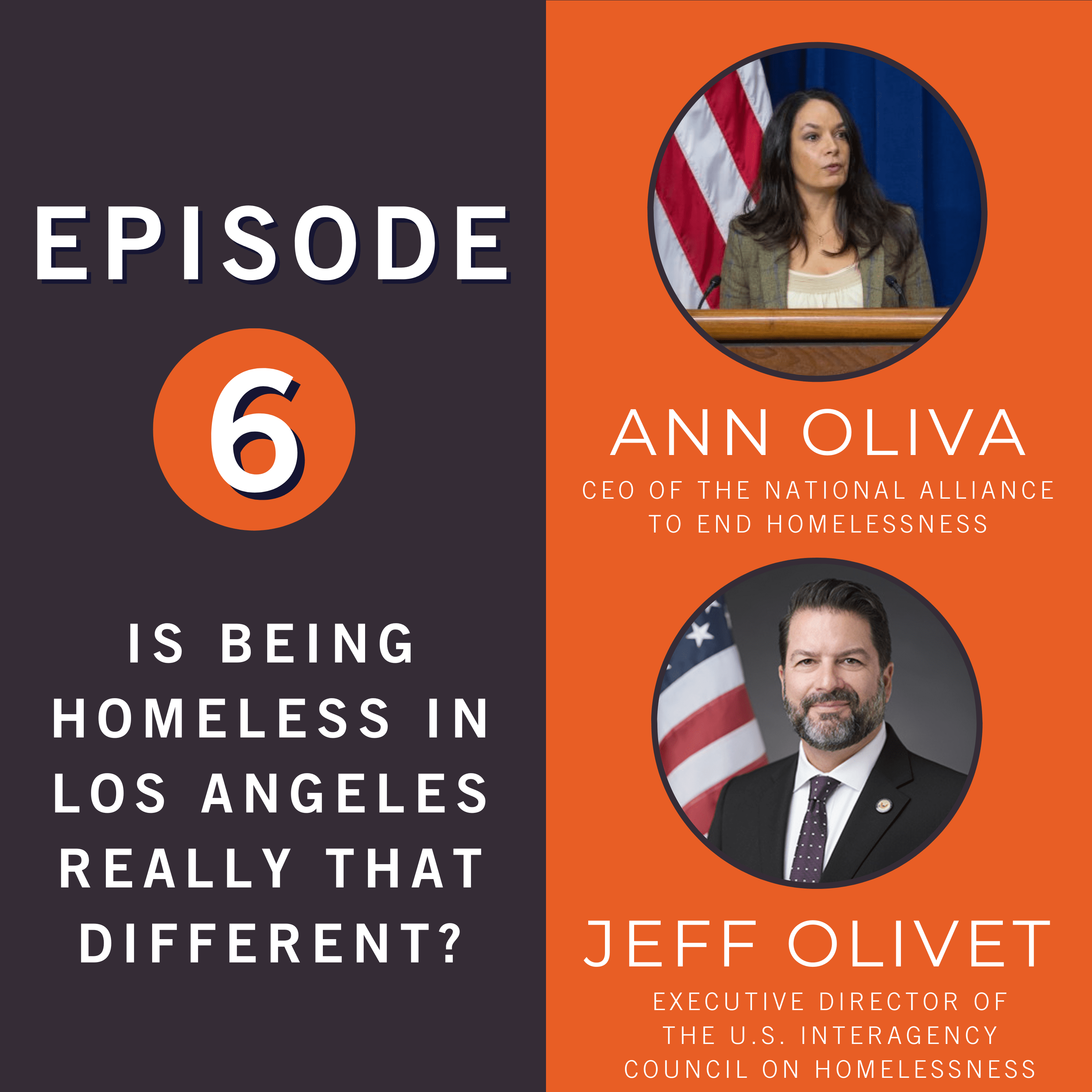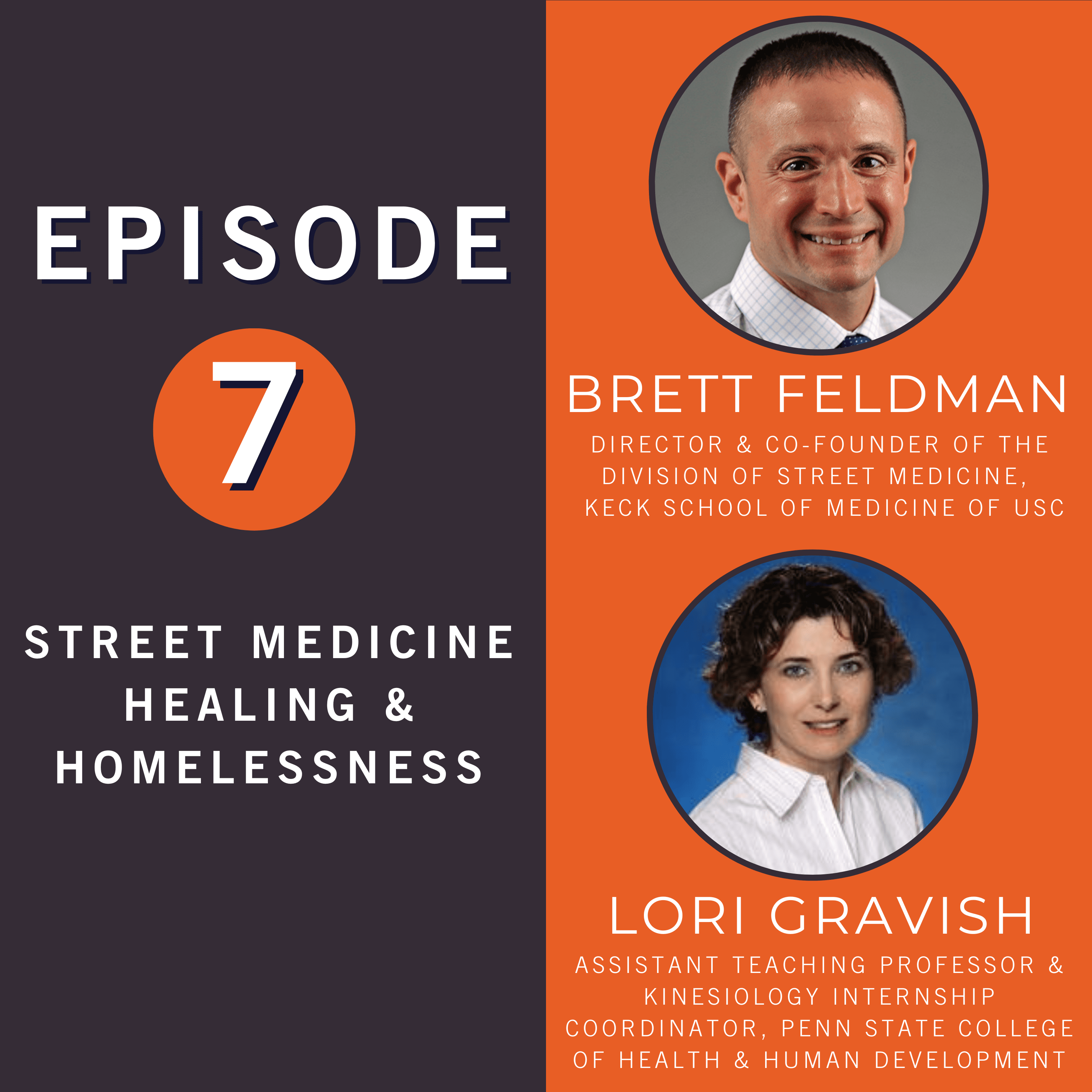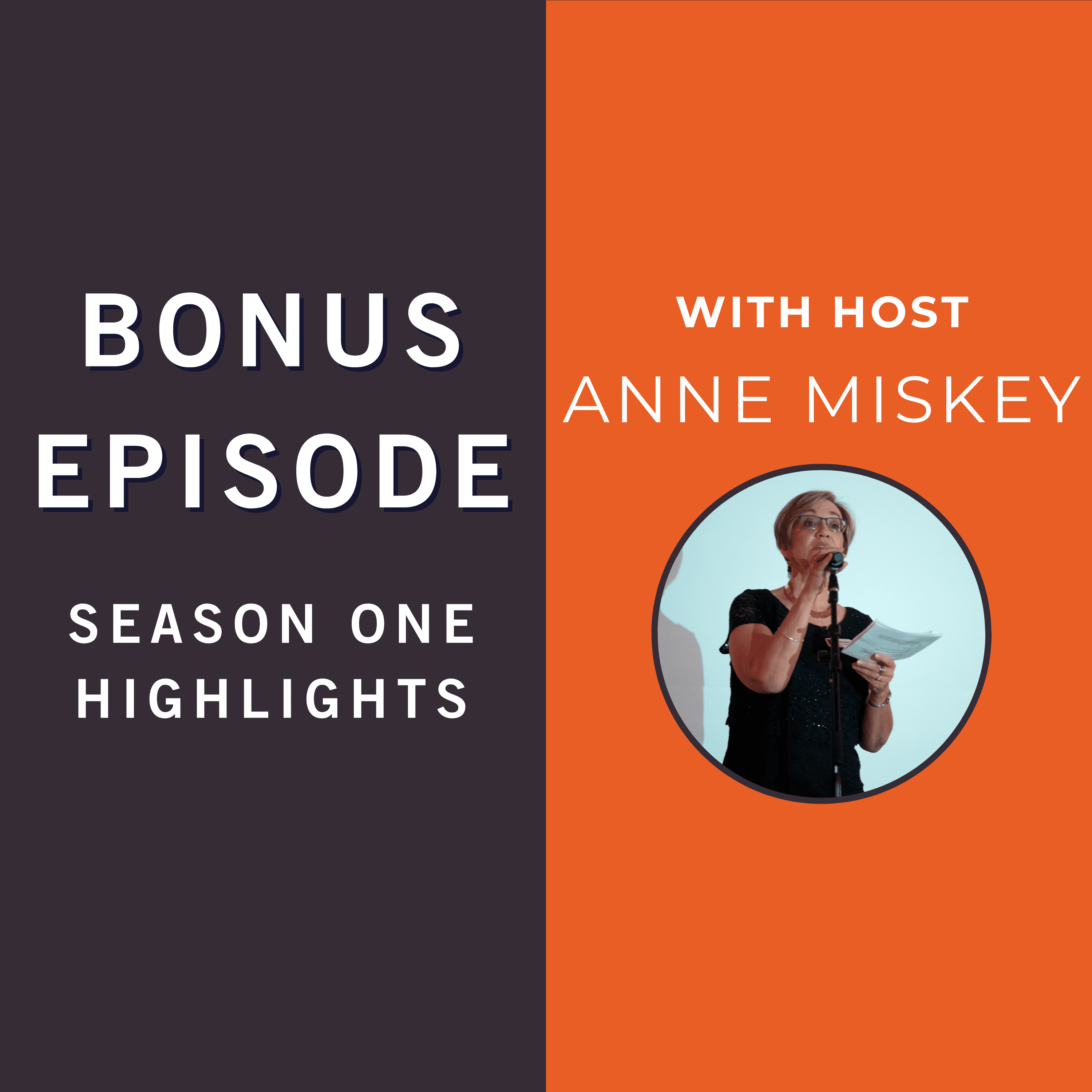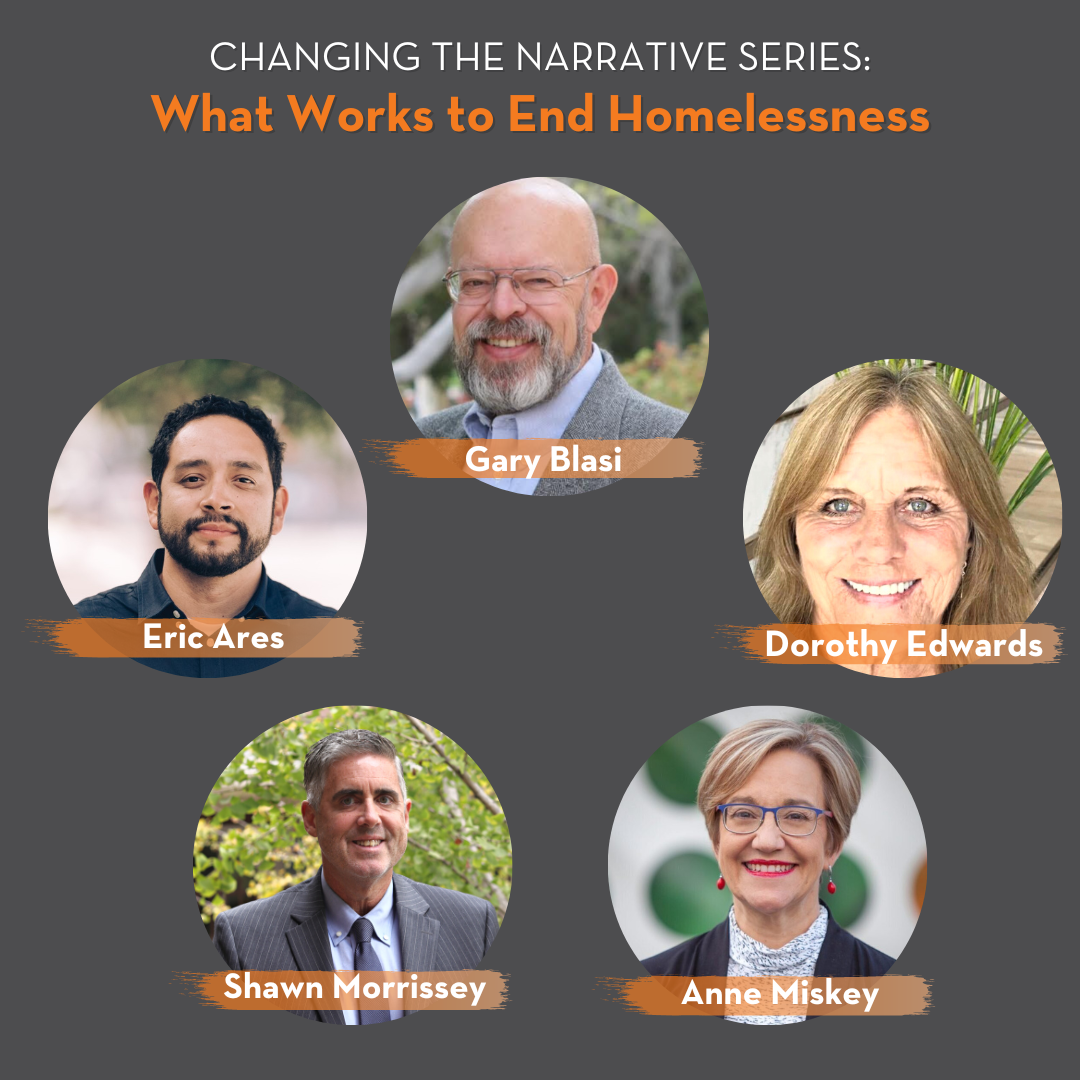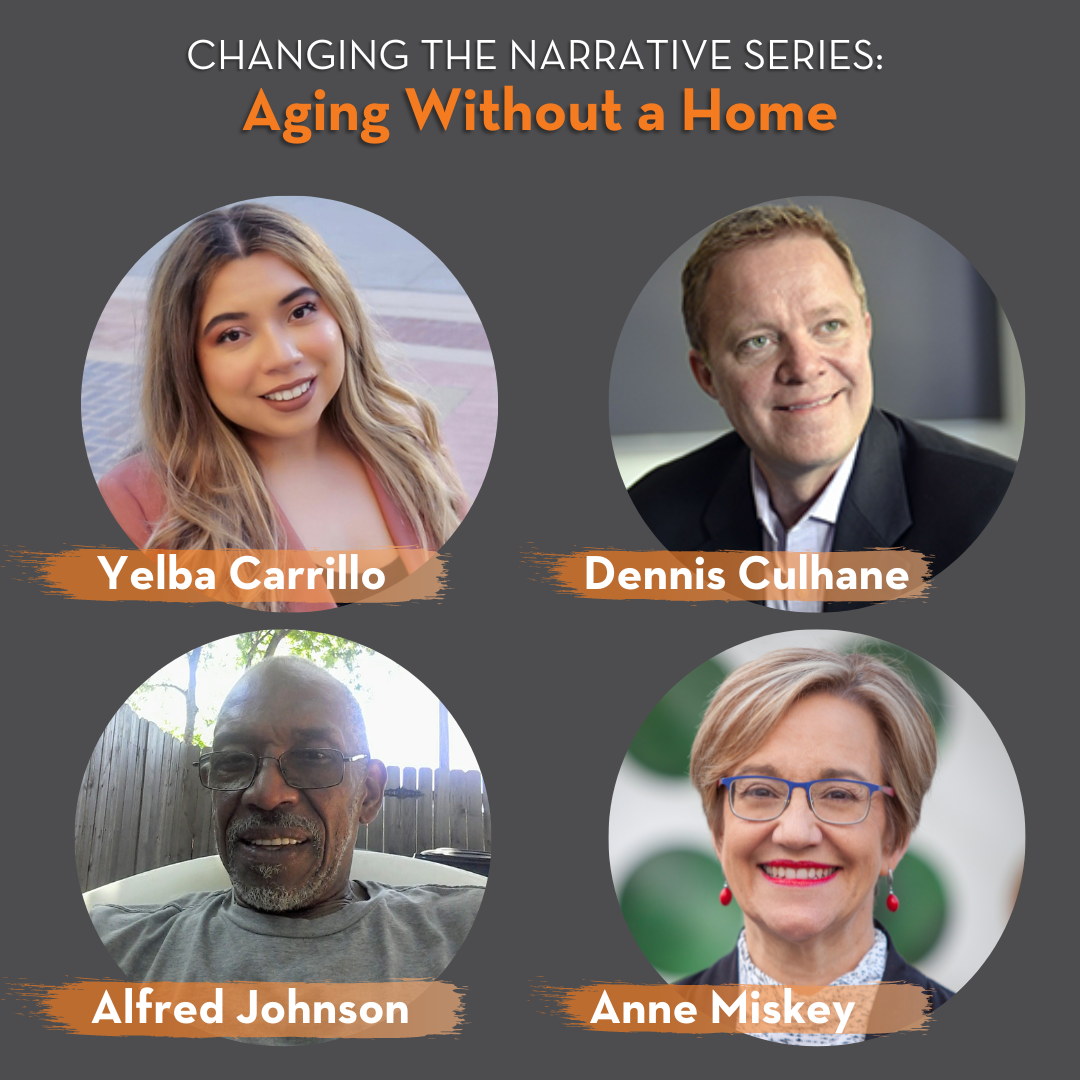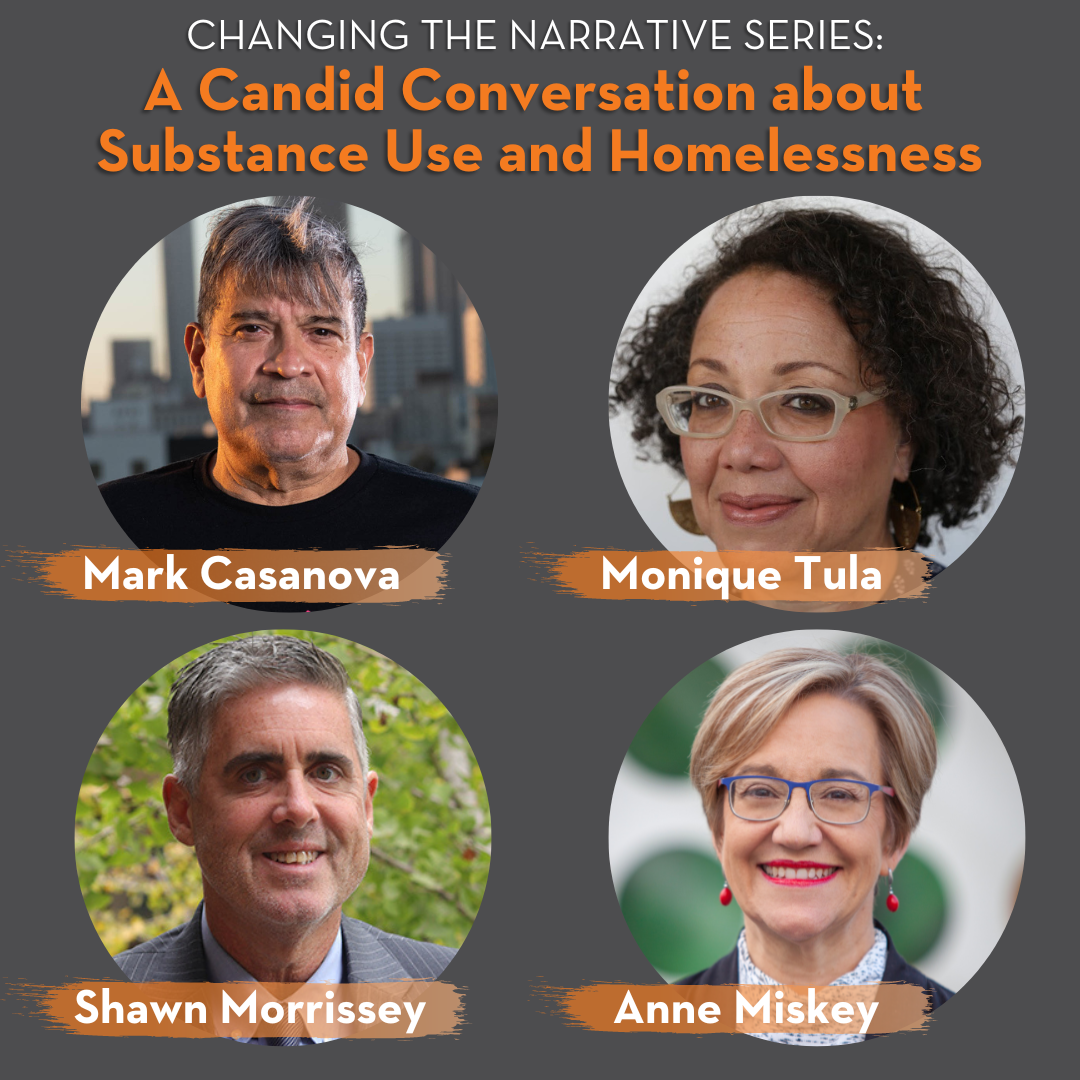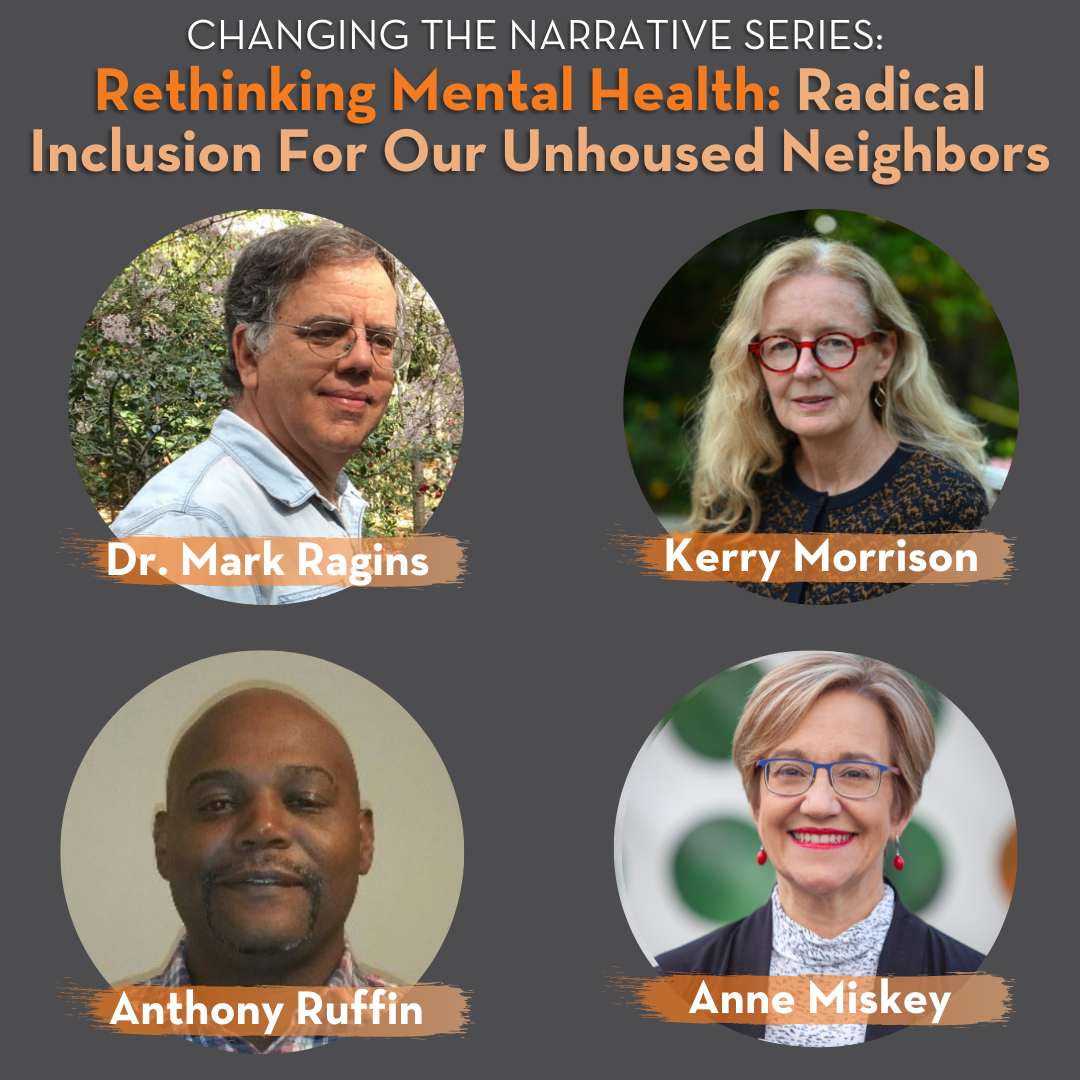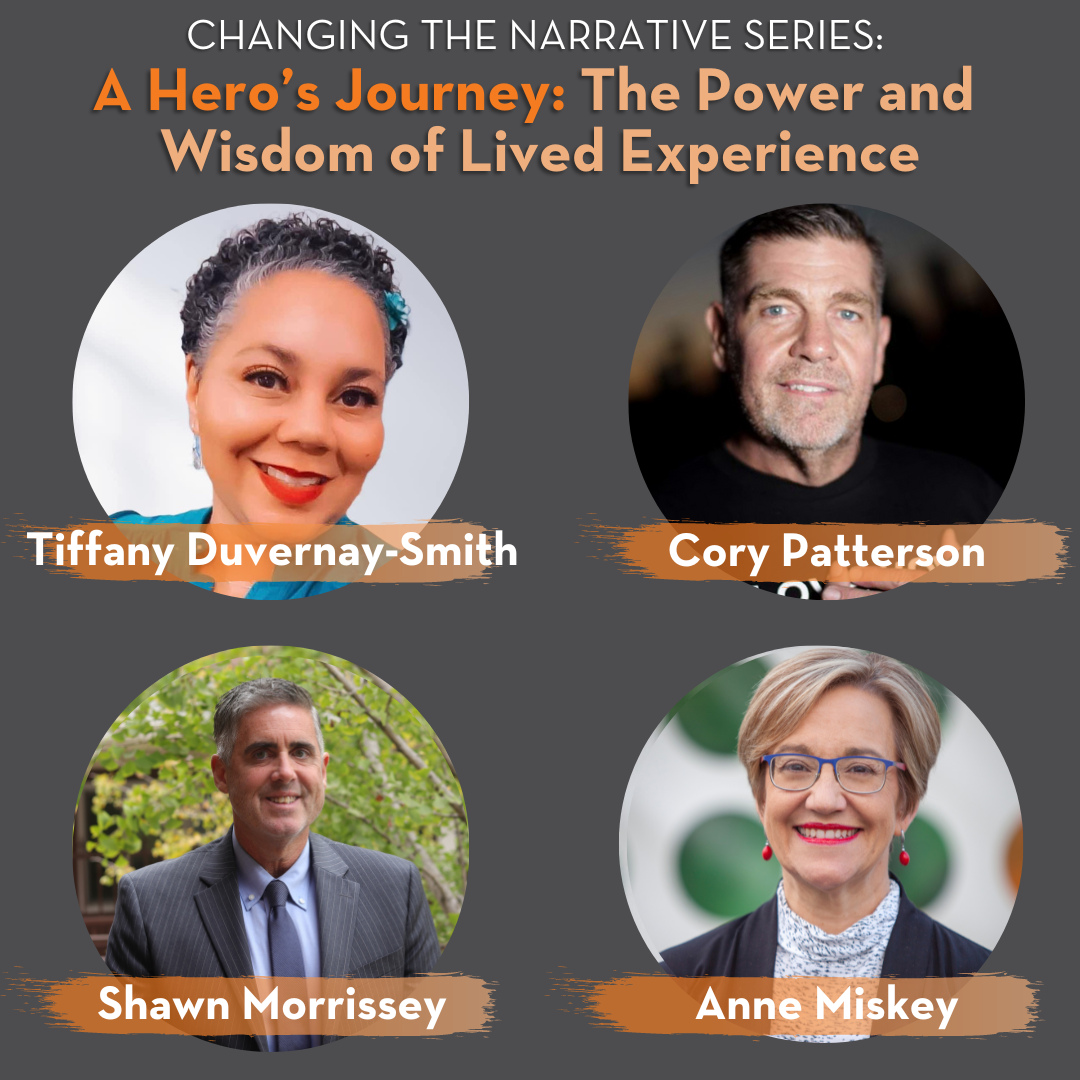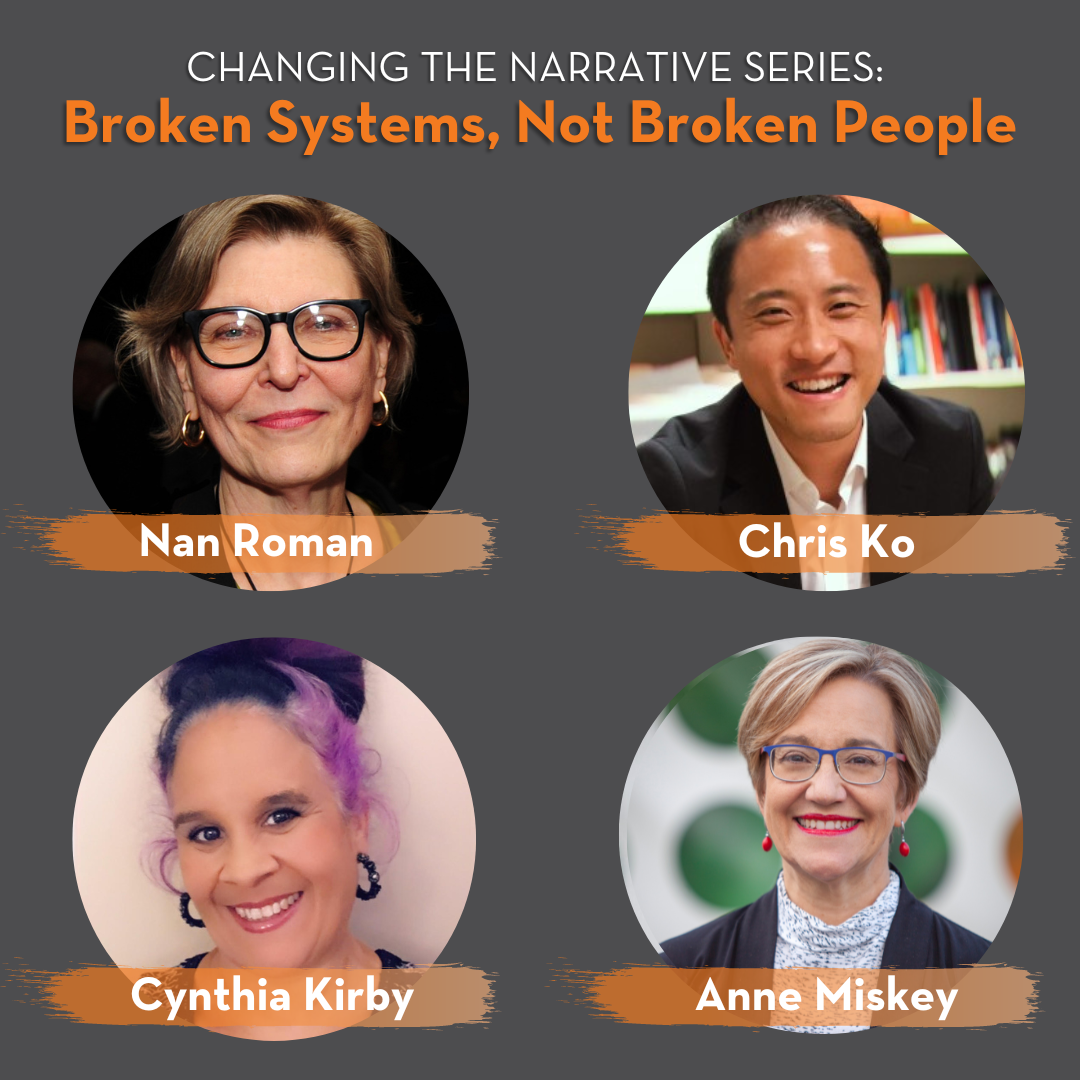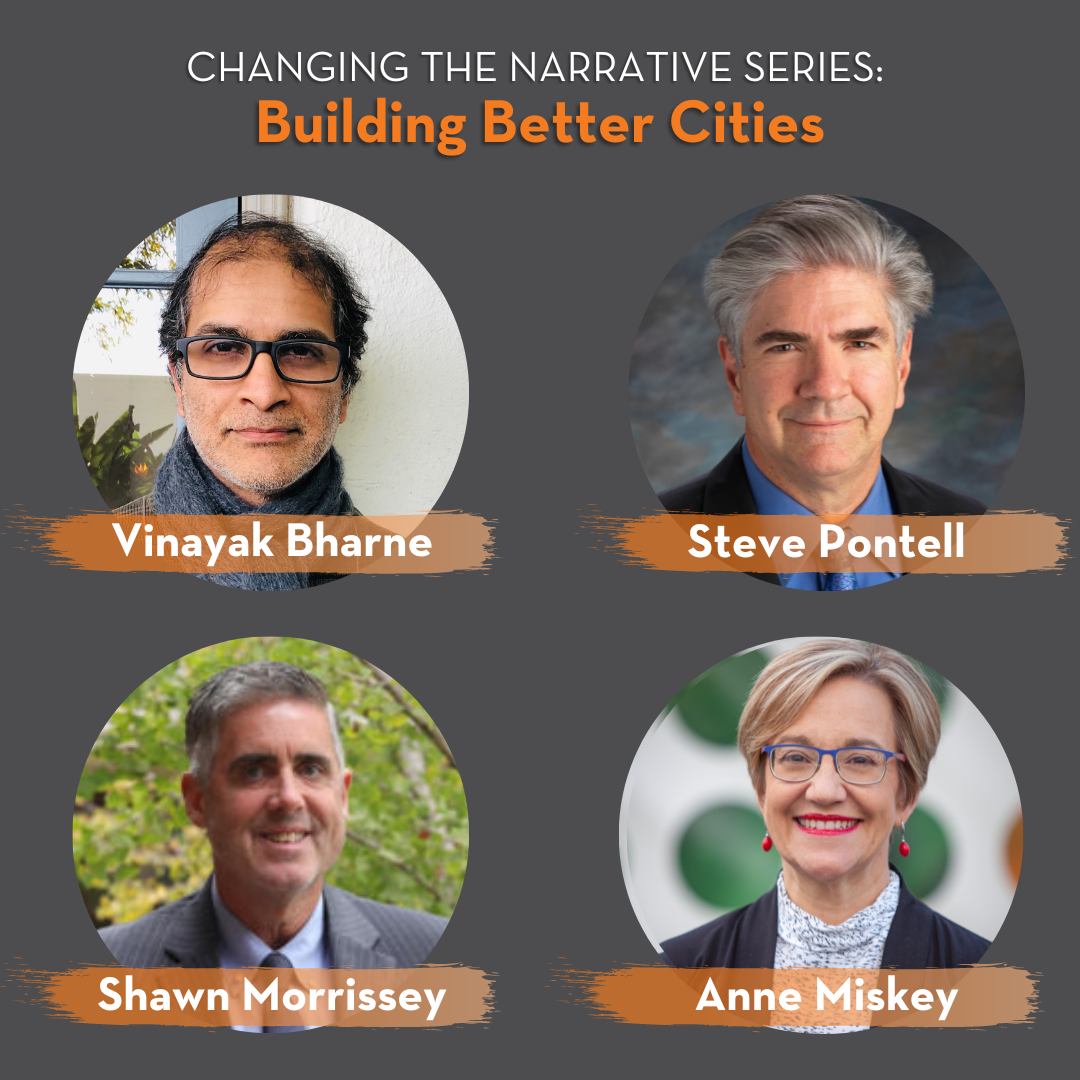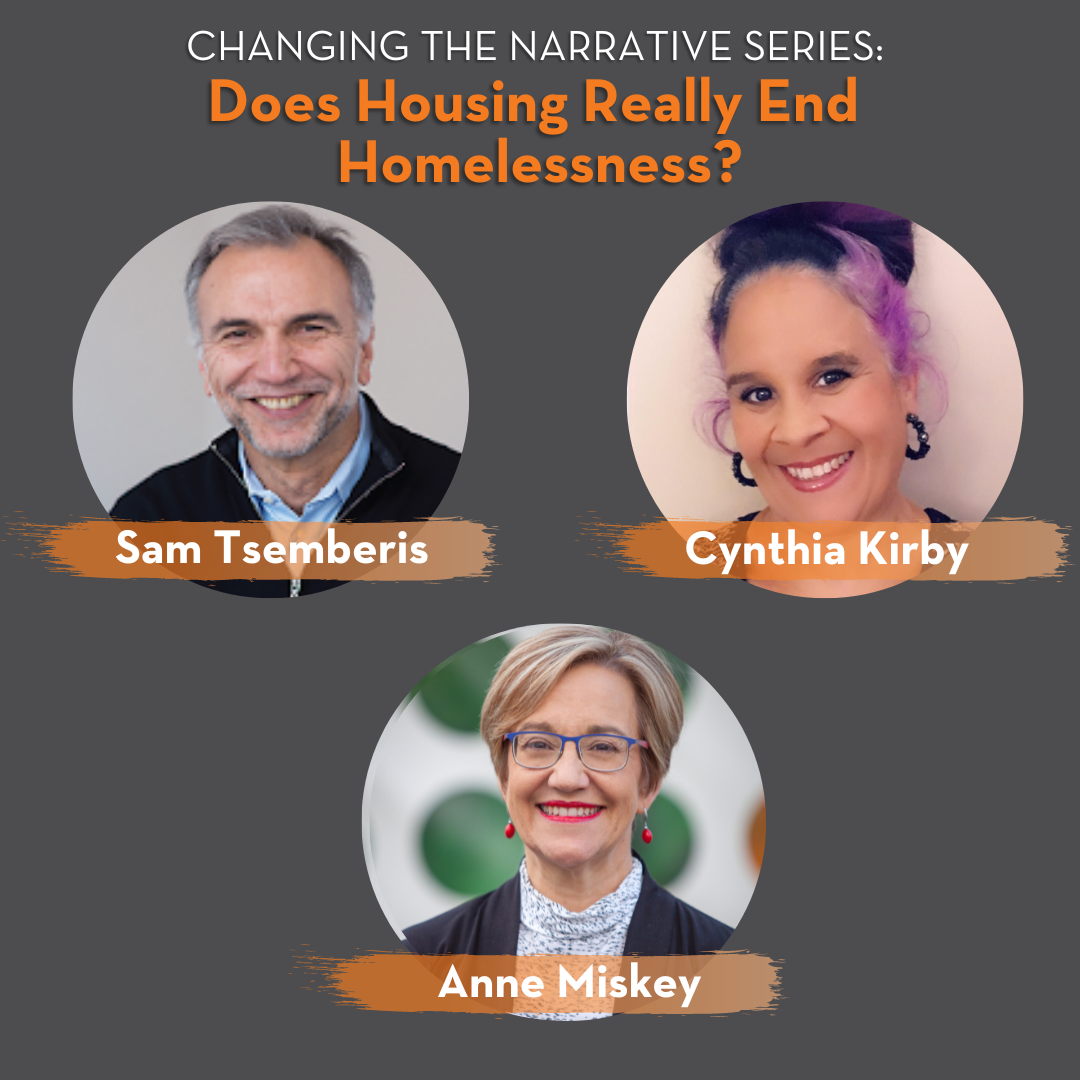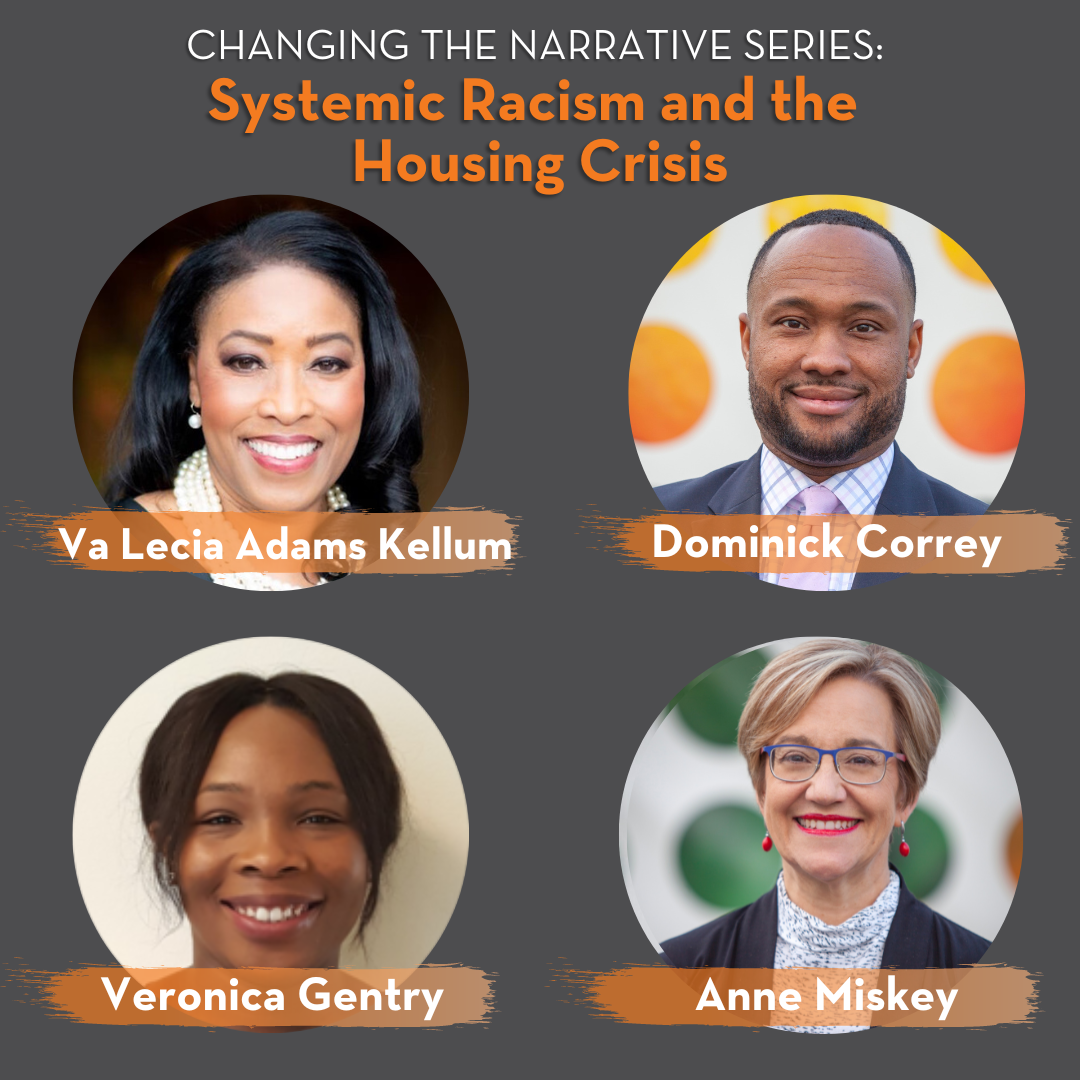
Hosted by Anne Miskey, President and CEO of Union Station Homeless Services, the Changing the Narrative about Homelessness Podcast features insightful discussions with local and national experts on topics such as housing, homelessness, and community issues.
This informative and engaging podcast builds upon the success of the Changing the Narrative Webinar Series, recognized as one of the top 5 “Most Innovative Awareness Campaigns in 2021” by the Los Angeles Business Journal.
The podcast continues the conversation and promotes understanding and empathy for those affected by homelessness. Join us in changing the narrative about homelessness in our neighborhoods. Together, we can be the solution we want to see in our communities.
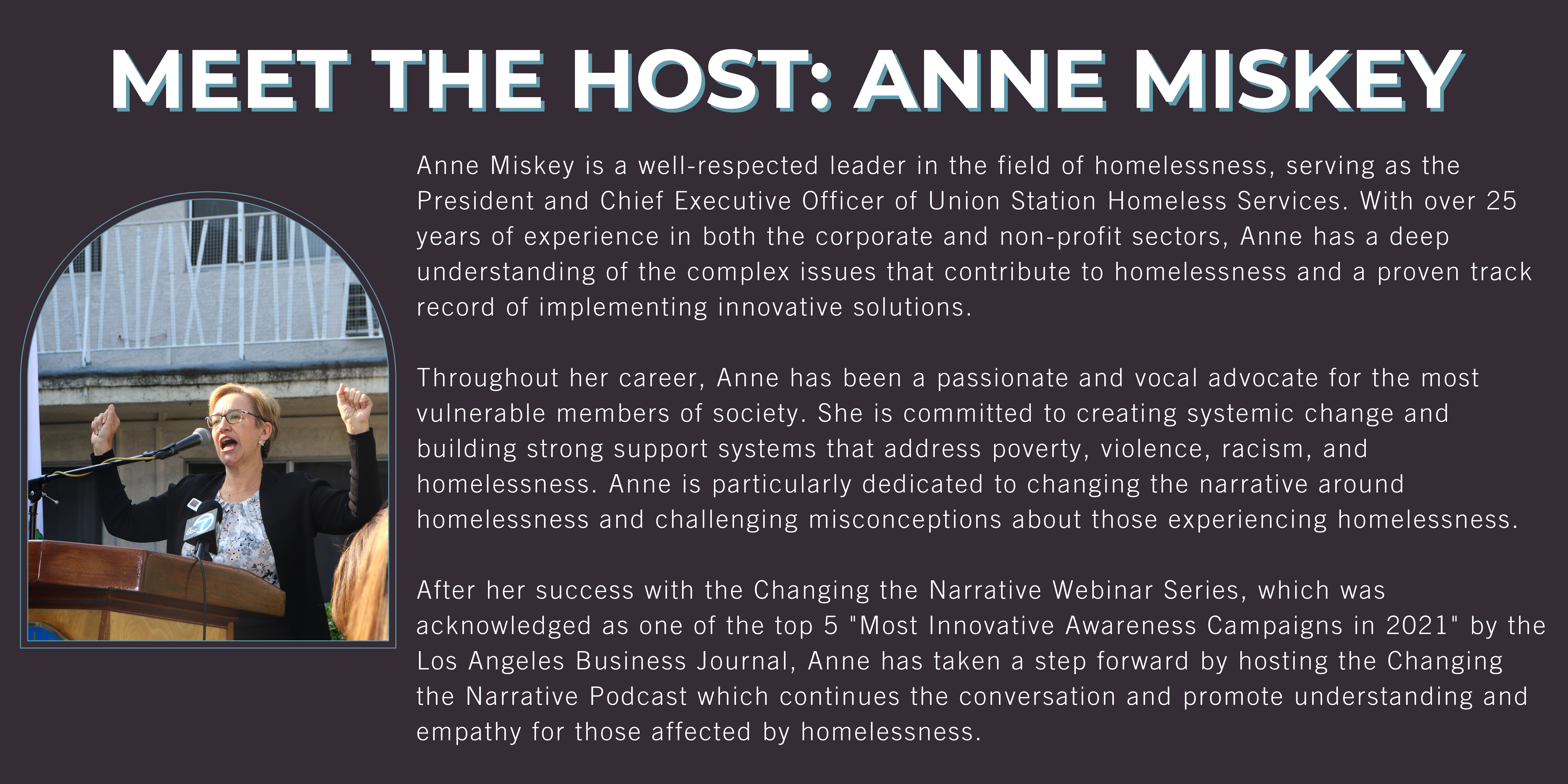
Season 2
The number one reason for the increase in people experiencing homelessness is the shortage of affordable housing. It is estimated that over half a million low-income renter households in LA County do not have access to an affordable home. Sarah Saadian, SVP of Public Policy and Field, National Low Income Housing Coalition and Sarah Hunter, Director, RAND Center on Housing and Homelessness in Los Angeles join Anne Miskey to talk about the direct link between the high cost of housing and homelessness. But there is hope and innovative solutions to address this crisis.
In this special episode, Anne gives a behind the scenes look at how Union Station Homeless Services was able to culminate its 50th year anniversary with its first ever float in the 2024 Rose Parade! The “Bee the Solution” to ending homelessness float uses a lighthearted and playful approach to raise awareness about the most pressing crisis of our time. The float offers a unique opportunity to inspire communities and homeless services agencies across the nation to unite with the common goal of ensuring that all our neighbors can find a safe and healthy place to call home. Anne chats with key players in this once-in-a-lifetime opportunity — Jay Walters, Union Station board member and mastermind behind the opportunity, John Ramirez, the creative and talented float designer at Artistic Entertainment Services (AES), and David Eads, CEO at the Pasadena Tournament of Roses who sheds light on the significance of this impactful collaboration.
In this episode, host Anne Miskey delves into the causes of the rise in homelessness among the Latino community. Joined by Dr. Melissa Chinchilla, Health Services Researcher with the Department of Veterans Affairs, and Adrian De Leon, Associate Director, Recovery Housing with Union Station Homeless Services, the discussion revolves around the question of how can we respond to meet the unique needs of Latino people experiencing homelessness. What are the service and resource gaps as well as the policy roadblocks that this community faces? You will also hear William’s personal story of becoming homeless, after caring for his grandmother. William was able to get the help he needed and now he is using his life experience to be an outreach worker on the Metro to help others in the Latino community who are experiencing homelessness.
Domestic violence is one of the main drivers into homelessness for 60,000 unhoused women in the state and 18,000 homeless women in Los Angeles County. Survivors can experience obstacles both in looking for housing and maintaining safe housing. Elizabeth Eastlund, a fierce advocate for persons with lived experience and advisor of Enfuse Action Collective, and Maricela Rios-Faust, CEO of Human Options, a comprehensive domestic violence service provider in Orange County, discuss with host Anne Miskey the impact of domestic violence on women and their children as well as cross-county and statewide efforts that focus on women finding resources for safety when fleeing domestic violence.
In this episode, we’ll be addressing a pervasive misconception surrounding homelessness: the assumption that all unhoused individuals are suffering from mental illness, largely as a result of the closure of mental institutions in the 1970s and 1980s. Host Anne Miskey is joined by Dr. Deborah Padgett, Professor at NYU Silver School of Social Work, and Keris Myrick, a leading mental health advocate and executive, as they discuss this widespread misunderstanding that has fueled a troubling trend toward advocating for mandatory treatment and institutionalization to end homelessness. We’ll also delve into the profound impact of homelessness on mental well-being, highlighting how the trauma of living without shelter can lead to significant mental distress and anxiety. Additionally, we’ll explore the pivotal role that access to stable housing can play in fostering healing and overcoming these challenges. Join us as we unravel these complex issues and shed light on genuine solutions.
Season 1
In our premiere episode, Anne chats with Shawn Morrissey, Vice President of Advocacy and Community Engagement at Union Station Homeless Services and Teresa Eilers, Vice President at Street Level Strategy. Bringing new housing to a neighborhood requires the support of the entire community. We have seen both successful and unsuccessful attempts. Our key to success is engaging in transparent community communication while building committed political willpower based on a foundation of wraparound supportive services.
In this episode, Anne talks with Ethan Ward, journalist and podcaster and Adam Murray, CEO of Inner City Law Center, about the criminalization of homelessness. Why are we seeing a return to criminalization of the unhoused across the country? Once again, cities are engaging in encampment sweeps, and instituting overnight parking bans and bans on sitting or sleeping near schools, libraries, and daycares. We have gone down this negative path before and it didn’t work. We can’t arrest our way out of the homeless crisis.
Housing is the only solution to ending homelessness. Everyone deserves a safe and secure home of their own. Housing Is A Human Right organization is conducting the National Coalition for the Homeless Power Advocacy Tour and have dropped by to help get their message out. Hear from Susie Shannon, Policy Director – Housing Is A Human Right, Mary Ann Cellini, Housing Specialist – Housing Is A Human Right & CA Field Office, National Coalition for the Homeless and Andre Martin, Community Organizer – National Coalition for the Homeless as they amplify the actions and activities of local homeless organizers working to decriminalize homelessness while working to end homelessness.
The housing voucher system suffers from widespread misunderstandings among landlords and the community. In this episode, Anne talks with guests Giulianna LoMaglio, Union Station Homeless Services‘ Associate Director, Housing Location, and Alicia Huizar, who is a landlord with housing voucher experience. The conversation sheds light on the true nature of the voucher system. A housing voucher with wraparound services is really a win-win for both the tenant and the landlord.
Far too often we hear people making wild statements about those experiencing homelessness. While many of us are aware that these comments are unfounded, we often lack the knowledge on how to respond effectively. In this episode, we will hear what people are saying, directly address these misperceptions and present the facts to set the record straight.
California is the epicenter for homelessness – with the state being home to 50% of the country’s unsheltered people, or those living in places such as streets, cars or parks – but is it really that different from other places in the U.S.? In this episode, Anne Miskey talks with two national experts, Jeff Olivet, Executive Director of the U.S. Interagency Council on Homelessness, and Ann Oliva, CEO of the National Alliance to End Homelessness. They weigh in on how Los Angeles compares to other cities in the U.S., and what is working – or not working – to end homelessness.
People experiencing homelessness often face significant obstacles in accessing healthcare. In this episode, Anne engages in a conversation with Brett Feldman from Keck USC and Lori Gravish Hurtack from Penn State, discussing the field of street medicine and the creative approaches healthcare professionals, including doctors, nurses, and physician assistants, are employing to deliver medical care to individuals without stable housing.
ICYMI in this bonus episode, Anne highlights some of the greatest moments from our First Season. From debunking myths and gaining community support to explaining street medicine and the Housing First philosophy, there have been many informative conversations and stories shared by our guests throughout the seven episodes. One episode at a time, we are ‘changing the narrative’ about homelessness.
